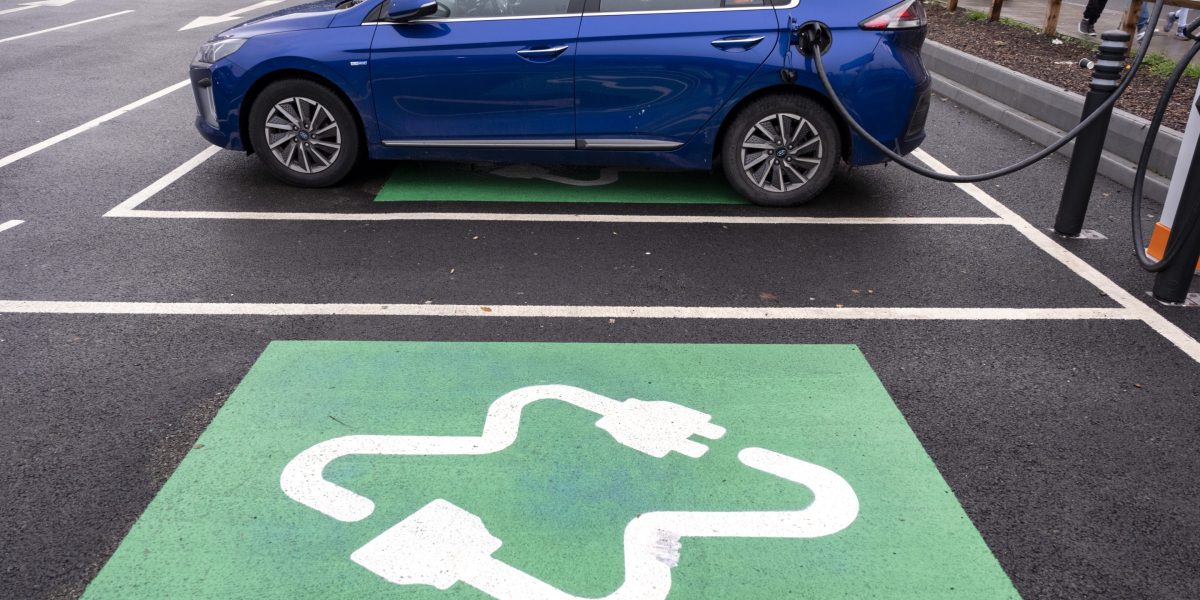Running an electric vehicle company has never been harder than it is now. Increasing competition, dwindling sales, startups scrambling for cash, and price wars that risk setting the industry on fire—the challenges keep mounting, and dragging companies into existential trouble.
The latest EV company to fold is Arrival, a U.K.-headquartered startup that’s close to a decade old. The company announced that its British arm was entering administration (similar to bankruptcy protection in the U.S.) on Monday, just a week after it received a notice from Nasdaq, the U.S.’s tech-heavy index, that its trading would be suspended.
Arrival failed to file its 2022 annual accounts and to meet “Nasdaq’s continued listing standards,” resulting in its removal from the stock exchange, the company said in a press release.
Accounting firm EY-Parthenon will be overseeing the company’s administration process to explore “options for the sale of the business and assets” including its intellectual property and EV platforms, the Financial Times reported. The process will also potentially result in the loss of 170 jobs at Arrival’s U.K. operations—but its operations elsewhere in the world will remain unaffected.
The British electric van-maker, which was backed by Hyundai and BlackRock, was valued at $13 billion upon its listing in 2021, according to Crunchbase. Arrival’s launch was a watershed moment for the U.K.’s EV ambitions as it looked like a promising player in an important—and, at the time, fast-growing—market. For its part, it received orders for its vans from American companies like United Parcel Services and Uber, but it never quite got to the point of mass production.
The company’s shares have since declined by almost 80%, leaving its current market valuation at $2.76 billion.
With the twin events of delisting from the Nasdaq and going into administration, Arrival reflects the many uphill battle companies face in trying to get a piece of the EV pie.
Arrival had been struggling with soaring costs as it took several swings at restructuring, including last year's layoffs of roughly 50% of its global workforce.
It made a pivot to focus more on the U.S. in 2022, hoping to cash in on the Biden Administration’s Inflation Reduction Act, which offered subsidies for commercial EV manufacturers that could be a lifeline for Arrival’s turnaround. The U.K. didn’t offer the same benefits at the time, which made it challenging to scale its business, Arrival said, according to Reuters.
As the company burned through its cash, it reported net losses of $1 billion in 2021 and 2022. While those charges were in part a result of its restructuring efforts, it still didn’t make meaningful revenue at the time. In late 2022, the company warned that it would soon run out of money despite its efforts to curb costs.
Last May, Arrival reported a drop in its cash and cash equivalents of close to 40% in a span of three months, raising the specter of the celebrated EV company not having enough funds to keep the lights on.
Arrival managed to line up fund injections in 2023—including a loan worth $50 million in November that could keep the company afloat as it decided its course of action.
Through all the tumult, Arrival still represented the U.K.’s dream to be a hub for EV-makers. But it hasn’t been alone in failing to bring that vision to fruition—in Jan. 2023, battery startup Britishvolt entered administration owing to insufficient funds.
“Britishvolt provided a significant opportunity to create jobs and employment, as well as to support the development of technology and infrastructure needed to help with the UK’s energy transition,” Dan Hurd, one of the administrators at EY-Parthenon appointed on the battery-maker’s case, told Fast Markets, adding: “It is disappointing that the company has been unable to fulfil its ambitions and secure the equity funding needed to continue.”
A number of other EV startups have also gone bust in recent times, including Swedish truck-maker Volta (which has operations in the U.K.), which was unable to raise capital following the bankruptcy of its battery supplier Proterra.
The U.K. is still trying to pump millions into EV projects, and is also attracting investment from auto majors like Nissan. But it’s facing challenges with navigating post-Brexit regulations that make British-made EVs significantly more expensive to sell in the EU.
Britain also trails behind when it comes to offering incentives to EV adopters, compared to European peers like Germany and France. That, coupled with a waning appetite for EVs across the world, is making it harder for the U.K. to become an EV super-power.

 fortune.com
fortune.com
The latest EV company to fold is Arrival, a U.K.-headquartered startup that’s close to a decade old. The company announced that its British arm was entering administration (similar to bankruptcy protection in the U.S.) on Monday, just a week after it received a notice from Nasdaq, the U.S.’s tech-heavy index, that its trading would be suspended.
Arrival failed to file its 2022 annual accounts and to meet “Nasdaq’s continued listing standards,” resulting in its removal from the stock exchange, the company said in a press release.
Accounting firm EY-Parthenon will be overseeing the company’s administration process to explore “options for the sale of the business and assets” including its intellectual property and EV platforms, the Financial Times reported. The process will also potentially result in the loss of 170 jobs at Arrival’s U.K. operations—but its operations elsewhere in the world will remain unaffected.
The British electric van-maker, which was backed by Hyundai and BlackRock, was valued at $13 billion upon its listing in 2021, according to Crunchbase. Arrival’s launch was a watershed moment for the U.K.’s EV ambitions as it looked like a promising player in an important—and, at the time, fast-growing—market. For its part, it received orders for its vans from American companies like United Parcel Services and Uber, but it never quite got to the point of mass production.
The company’s shares have since declined by almost 80%, leaving its current market valuation at $2.76 billion.
With the twin events of delisting from the Nasdaq and going into administration, Arrival reflects the many uphill battle companies face in trying to get a piece of the EV pie.
Arrival had been struggling with soaring costs as it took several swings at restructuring, including last year's layoffs of roughly 50% of its global workforce.
It made a pivot to focus more on the U.S. in 2022, hoping to cash in on the Biden Administration’s Inflation Reduction Act, which offered subsidies for commercial EV manufacturers that could be a lifeline for Arrival’s turnaround. The U.K. didn’t offer the same benefits at the time, which made it challenging to scale its business, Arrival said, according to Reuters.
As the company burned through its cash, it reported net losses of $1 billion in 2021 and 2022. While those charges were in part a result of its restructuring efforts, it still didn’t make meaningful revenue at the time. In late 2022, the company warned that it would soon run out of money despite its efforts to curb costs.
Last May, Arrival reported a drop in its cash and cash equivalents of close to 40% in a span of three months, raising the specter of the celebrated EV company not having enough funds to keep the lights on.
Arrival managed to line up fund injections in 2023—including a loan worth $50 million in November that could keep the company afloat as it decided its course of action.
Through all the tumult, Arrival still represented the U.K.’s dream to be a hub for EV-makers. But it hasn’t been alone in failing to bring that vision to fruition—in Jan. 2023, battery startup Britishvolt entered administration owing to insufficient funds.
“Britishvolt provided a significant opportunity to create jobs and employment, as well as to support the development of technology and infrastructure needed to help with the UK’s energy transition,” Dan Hurd, one of the administrators at EY-Parthenon appointed on the battery-maker’s case, told Fast Markets, adding: “It is disappointing that the company has been unable to fulfil its ambitions and secure the equity funding needed to continue.”
A number of other EV startups have also gone bust in recent times, including Swedish truck-maker Volta (which has operations in the U.K.), which was unable to raise capital following the bankruptcy of its battery supplier Proterra.
The U.K. is still trying to pump millions into EV projects, and is also attracting investment from auto majors like Nissan. But it’s facing challenges with navigating post-Brexit regulations that make British-made EVs significantly more expensive to sell in the EU.
Britain also trails behind when it comes to offering incentives to EV adopters, compared to European peers like Germany and France. That, coupled with a waning appetite for EVs across the world, is making it harder for the U.K. to become an EV super-power.

British EV maker, once valued at $13 billion, has gone into bankruptcy protection without making any sales—after getting kicked out of Nasdaq
British EV truck company Arrival was facing soaring costs and had attempted restructuring plans before. It got delisted from the Nasdaq last month.

